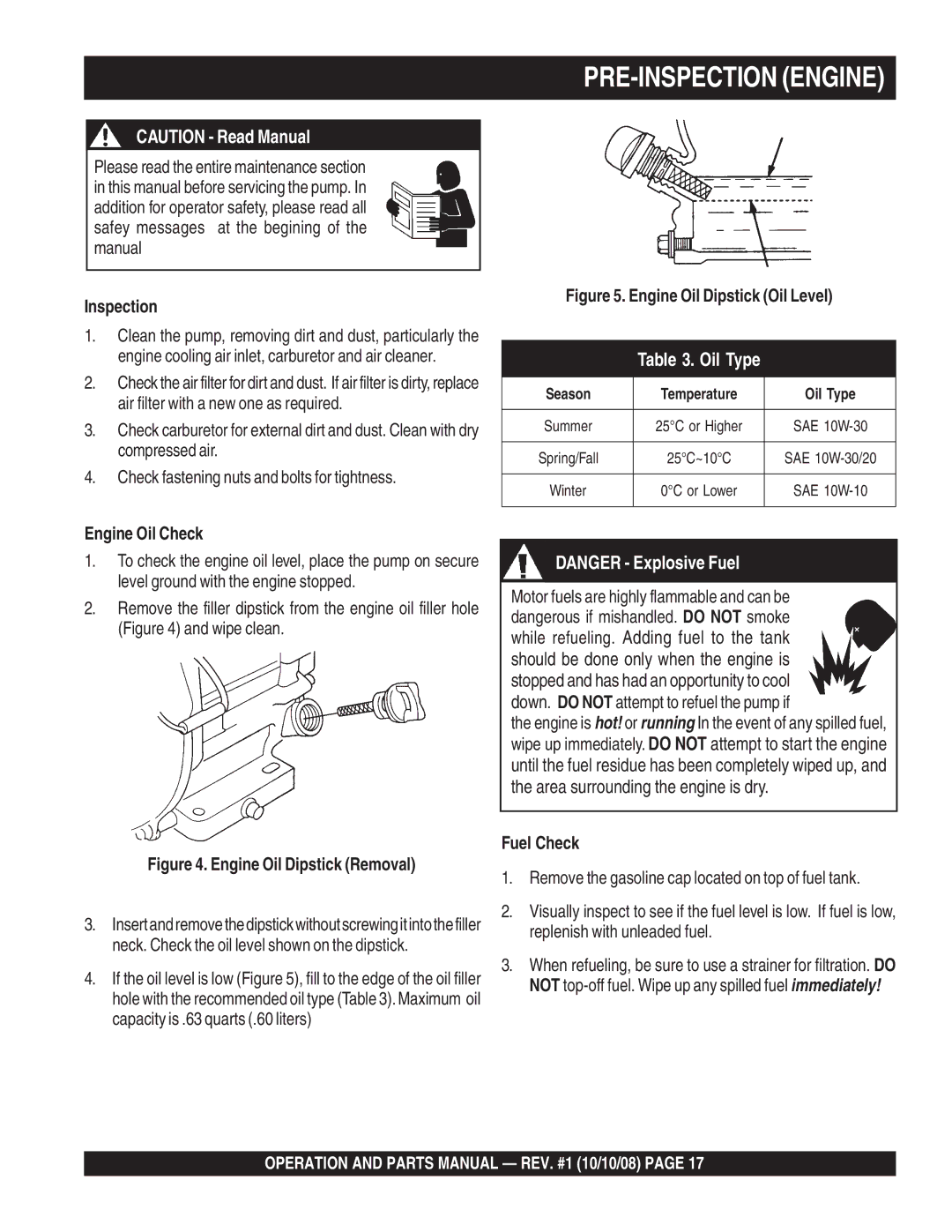
PRE-INSPECTION (ENGINE)
CAUTION - Read Manual
Please read the entire maintenance section in this manual before servicing the pump. In addition for operator safety, please read all safey messages at the begining of the manual
Inspection
1.Clean the pump, removing dirt and dust, particularly the engine cooling air inlet, carburetor and air cleaner.
2.Check the air filter for dirt and dust. If air filter is dirty, replace air filter with a new one as required.
3.Check carburetor for external dirt and dust. Clean with dry compressed air.
4.Check fastening nuts and bolts for tightness.
Figure 5. Engine Oil Dipstick (Oil Level)
Table 3. Oil Type
Season | Temperature | Oil Type |
|
|
|
Summer | 25°C or Higher | SAE |
|
|
|
Spring/Fall | 25°C~10°C | SAE |
|
|
|
Winter | 0°C or Lower | SAE |
|
|
|
Engine Oil Check
1.To check the engine oil level, place the pump on secure level ground with the engine stopped.
2.Remove the filler dipstick from the engine oil filler hole (Figure 4) and wipe clean.
![]() DANGER - Explosive Fuel
DANGER - Explosive Fuel
Motor fuels are highly flammable and can be dangerous if mishandled. DO NOT smoke while refueling. Adding fuel to the tank should be done only when the engine is stopped and has had an opportunity to cool down. DO NOT attempt to refuel the pump if
the engine is hot! or running In the event of any spilled fuel, wipe up immediately. DO NOT attempt to start the engine until the fuel residue has been completely wiped up, and the area surrounding the engine is dry.
Figure 4. Engine Oil Dipstick (Removal)
3.Insertandremovethedipstickwithoutscrewingitintothefiller neck. Check the oil level shown on the dipstick.
4.If the oil level is low (Figure 5), fill to the edge of the oil filler hole with the recommended oil type (Table 3).Maximum oil capacity is .63 quarts (.60 liters)
Fuel Check
1.Remove the gasoline cap located on top of fuel tank.
2.Visually inspect to see if the fuel level is low. If fuel is low, replenish with unleaded fuel.
3.When refueling, be sure to use a strainer for filtration. DO NOT
